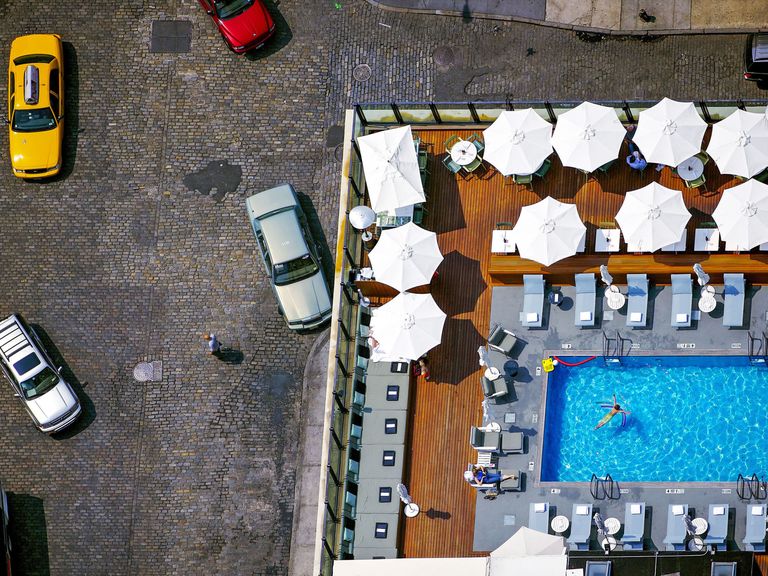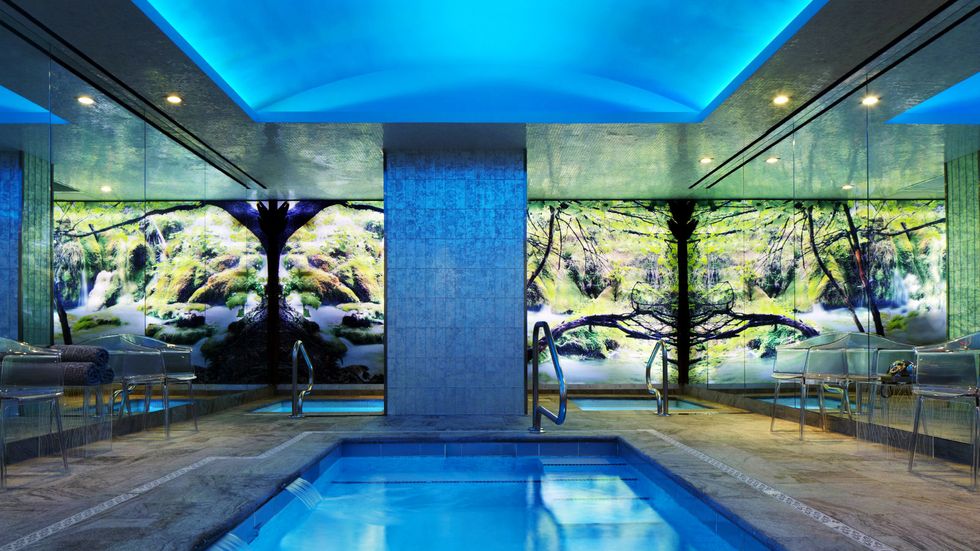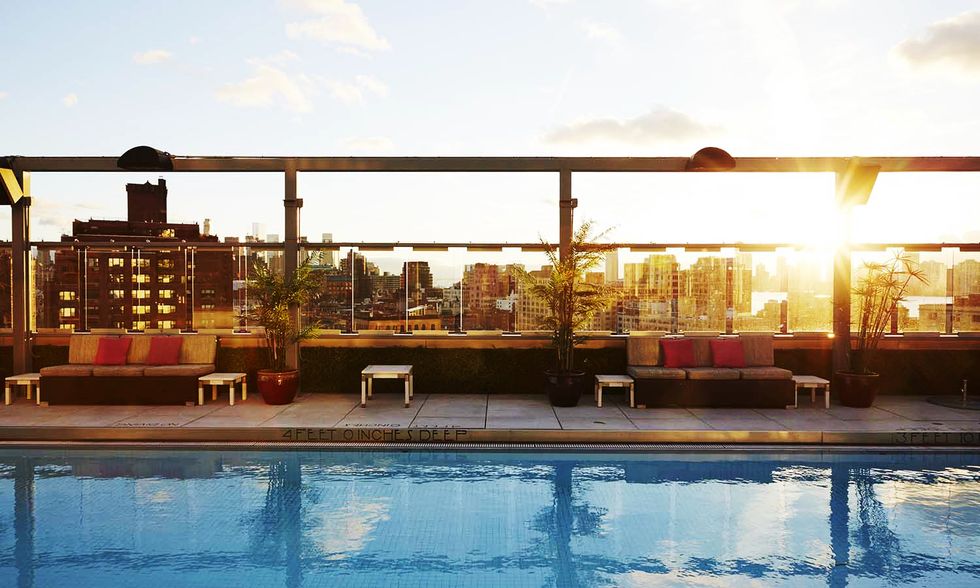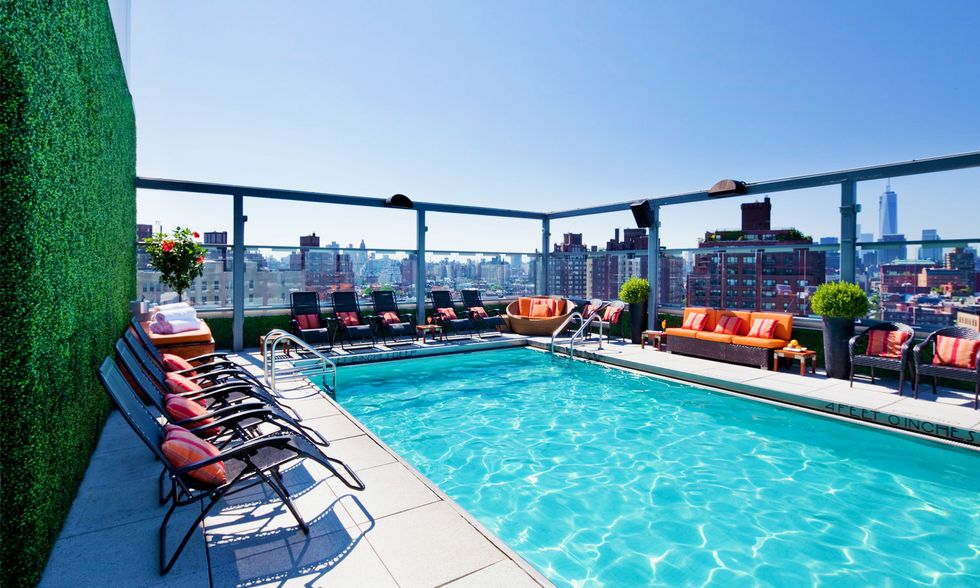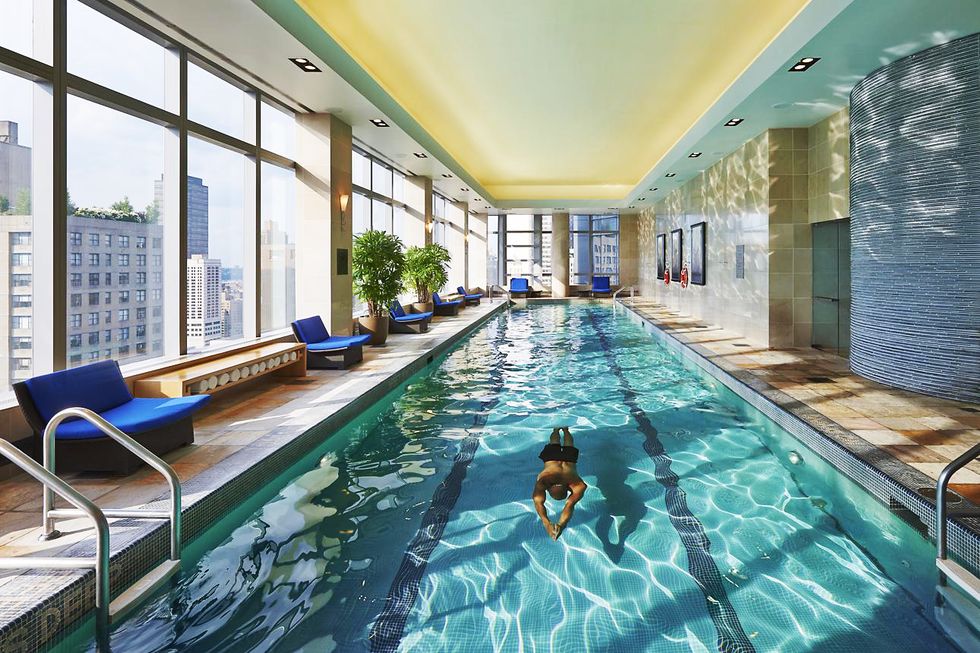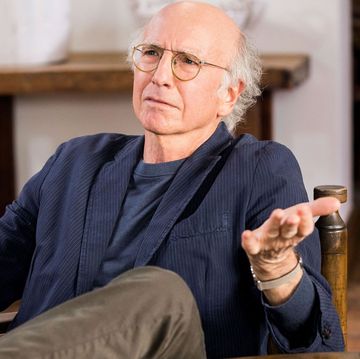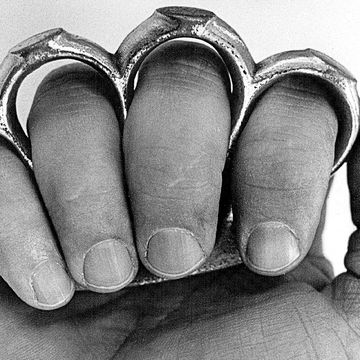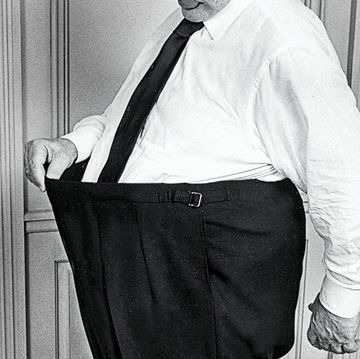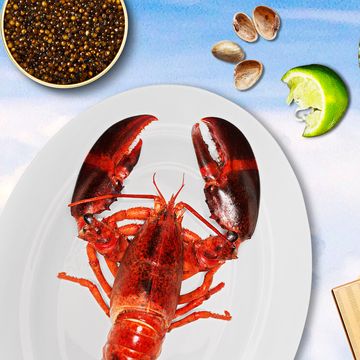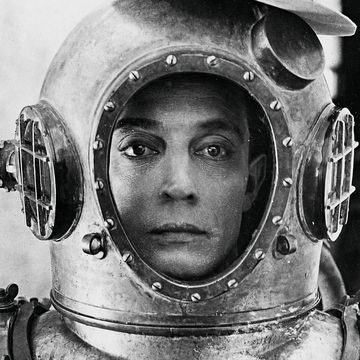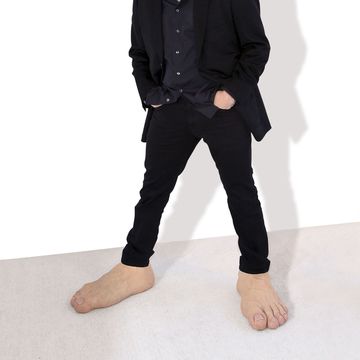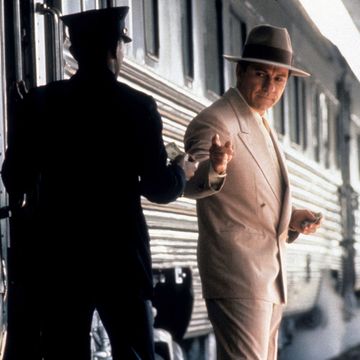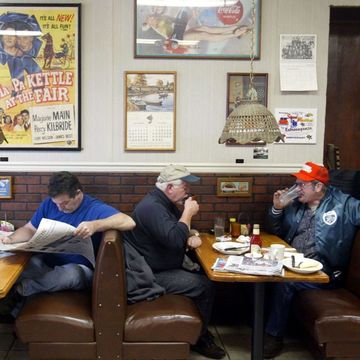When I was thirteen and living in south Florida, I hadn't yet read John Cheever's classic short story "The Swimmer." I'd lived it, though, in my own nocturnal, vaguely criminal sort of way.
Maybe you know "The Swimmer," or have seen the film version, which starred Burt Lancaster. It's about a man named Neddy Merrill who realizes, at an early-afternoon cocktail party, that he might be able to "swim home"—some eight miles, hopping in and out of the pools of friends. "The day was beautiful," Cheever wrote, "and it seemed to him that a long swim might enlarge and celebrate its beauty."
Neddy's swim starts promisingly. Along the way there are cocktails to consume, friends to embrace, old lovers who might be glad to see him. A few of his portages while in swim trunks—across highways, through horse farms—are embarrassing, but nothing he can't handle. As Neddy moves along, though, we start to realize his mind has come unstitched. He's lost everything that mattered to him, yet is unaware. "The Swimmer" is a dark story that I relish, in part, for its reflexive lightness—its hymns to swimming, life's best activity that doesn't take place in the bedroom or kitchen. I am right there with Neddy when he thinks, "That he lived in a world so generously supplied with water seemed like a clemency, a beneficence."
There is no verb for traveling while hopping from swimming pool to swimming pool. I'd like to propose one: cheevering. During the summers of my youth, in the postmidnight darkness, my friends and I would cheever through my family's neighborhood in Naples, Florida. Nearly every house had a rectangular pool out back. We'd make a circuit of dozens of these pools—quietly unlatching the screen doors, swimming from end to end, then tiptoeing out the screen doors on the other side. We could do this for hours. If girls were along, we might pause to make out a little. Maybe someone had a bottle of wine. We tried not to make noise. This was not yet the National Rifle Association's America. We were more worried about being chased than gut-shot by a Fox News disciple.
One August night, the joke was on us. The neighbors a few houses down had grown old and moved to a retirement home. Their house was shuttered. The pool cleaners had stopped coming. Over the course of several months, the unattended pool had turned into a fetid swamp, thick with weeds and muck. In the dark, we had no way of knowing. I leapt in first and hit the water with a thurk. It smelled as if I'd fallen into a moat filled with the deliquescing bodies of slaughtered knights. Before I could cry out, I heard the sickening thurks of my friends beside me. We all scrambled out as if we'd seen a shark and hustled off into the night, ooze hanging from our flesh, a motley pack of chastened underacheevers.
Misadventures in black goo aside, even then I knew the following to be true: Any day I can swim is a good day. Sliding into the water is baptism; it's rebirth. On hot summer evenings, my wife and I walk down to the Delaware River, about a block from our house, and float in the cool eddies, looking at birds and turtles. Other afternoons, I drive to a YMCA and swim for forty-five minutes or so. Some people don't like the smell of chlorine on their body. I do, maybe because it reminds me of being a kid. I don't always shower afterward. I keep swim trunks and a towel in the backseat of my car the way a teenage boy carries a condom in his wallet. You never know when an opportunity for bliss might present itself. About an hour from where I live, there's a Russian bathhouse. Man, it feels good to pop in there and soak like a foreign dignitary, moving between hot pools and cold ones. Dunk your head under the water; you've got your own quiet down there. The English novelist Iris Murdoch wrote ridiculously well about water; her novels are filled with lakes and rivers and spas. "Swimming, like dying, seems to solve all problems," she wrote, "and you remain alive."
On a hot spring day not long ago, I set out to see if I could cheever my way up the West Side of Manhattan. My editors at Esquire, who are happiness facilitators when they are not darkening one's door about deadlines, helped me get into some pools that aren't normally open to civilians (or nonhotel guests). That morning, I put swim trunks, a towel, goggles, and a book into a small bag, and I set off. It felt odd, traveling toward a swimming pool on a subway. It reminded me a bit of being on the Metro in Oslo, where the final stop, in the most Norwegian touch imaginable, drops you off in the woods.
I spent my morning at the rooftop pool of the Gansevoort, a luxury hotel in the Meatpacking District. Up there you get a wide-angle view of Lower Manhattan, the Hudson River, and the new Whitney Museum. The view from the Gansevoort poolside was nearly as sleek: The place was packed with tanned hardbodies. I sank into the aqua-blue pool and floated until I felt like a euphoric version of William Hurt in Altered States. I did not have, unlike many of the fellows around the pool, a tan or defined abs. All of the sudden, as if my psyche had ordered them from room service, two plus-size female models began to pose around the pool for a female photographer. I felt better, bodywise, instantly. I floated and sometimes watched. When one of the women modeled a too-short dress, I turned away and floated to the other end of the pool. Ten minutes later, she shrieked and hollered to the photographer, "Why didn't you tell me my coochie was hanging out?"
I made my way up to midtown and spent the early afternoon in the basement-level pool of the Chatwal, a boutique hotel not far from Bryant Park. Here there was New Age music and a sense of Zen, primeval calm. You can imagine Bill Murray, in a Manhattan remake of Lost in Translation, having a well-appointed spiritual crisis down here. I was alone. I swam against the current of the powerful lap pool until I was tired. I soaked in the hot tub, the surface of the water fizzing like the top of a glass of Champagne, or like the citrus oil that leaps from a clementine as you peel it. I'd been in the water for three or four hours today; the tips of my fingers were wrinkled. I toweled off and, like Neddy Merrill, kept moving.
I made my way to the Upper West Side, where I swam in the deep blue pool on the thirty-sixth floor of the Mandarin Oriental hotel. The pool room's stone walls and high ceilings put me in mind of something the great architect Louis Kahn said about the Roman Baths of Caracalla: "We know that we can bathe just as well under an 8-foot ceiling as we can under a 150-foot ceiling, but I believe there's something about a 150-foot ceiling that makes a man a different kind of man." I paddled about in this uncommonly beautiful pool as the sunset began to spread its way over the Hudson River.
My perfect day was nearing its end. I doubled back downtown and had dinner with a friend on the roof of the Hotel Americano, in Chelsea. I was tempted to leap into the small pool, lit by greenish underwater lights, but no one else was soaking, so I went to my table. The martinis up there are good. The soulful Mexican food is even better. I felt I could almost see my house out across the horizon, the way that Neddy, in Cheever's story, sensed, "with a cartographer's eye, that string of swimming pools, that quasi-subterranean stream that curved across the county." Cheever made this stream of pools sound as happy as one of Jack Kerouac's western highways. I began to wonder if I could swim home.
This article originally appeared in the August '17 issue.
